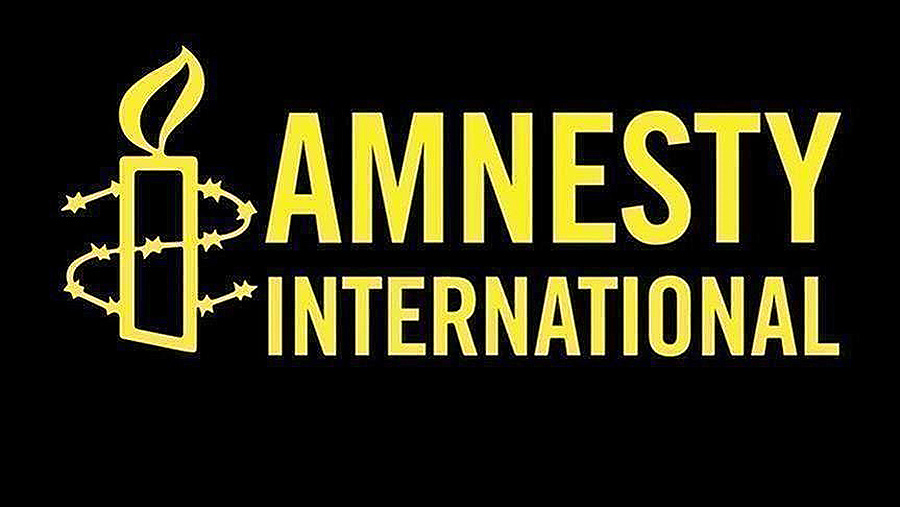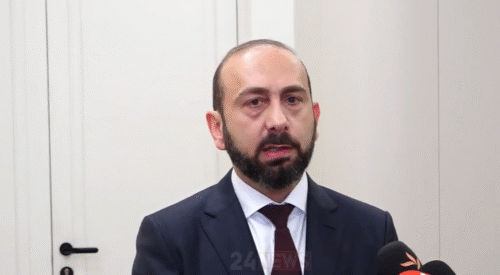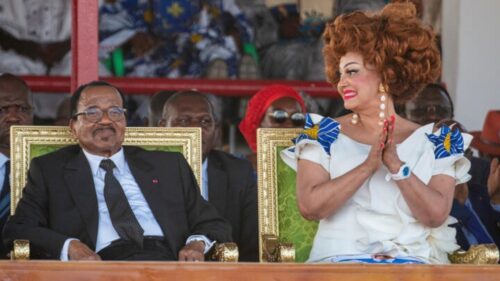
Artsakh war, freedom of speech and economy: Key points in Amnesty International’s reports on Armenia in the last 4 years
Amnesty International published its first annual report in 1962. It presents the state of human rights covering the entire calendar year from Jan. 1 to Dec. 31, covering about 150 countries (the exact number varies from year to year). The report is essentially a global and regional analysis of key human rights issues. The organization does not rank countries with a ranking table or points. According to the organization’s approach, the comparison is fraught with complications and will require judgments about the relative importance of human rights violations. For example, one country may highly respect civil liberties but deny minority access to health services, while another may restrict anti-government protests.
Sections on Armenia in Amnesty International’s 2020-2024 State of Human Rights Global Reports include a range of human rights concerns, particularly in the context of the Armenia-Azerbaijan conflict and domestic civil rights issues. The conflict with Azerbaijan over Artsakh is a recurring issue. The 2020 conflict has resulted in displacement and significant civilian casualties, while investigations into war crimes have been slow in 2020-2024.
From a security perspective, the Second Artsakh War was central to the 2020-2021 report. On Sept. 27, 2020, intense fighting erupted between Azerbaijan, Armenia, and Armenian-backed forces in Nagorno-Karabakh. The military clash with Azerbaijan resulted in numerous civilian casualties, injuries, and displacements. According to the U.N. High Commissioner for Human Rights, at the height of the conflict, about 90,000 ethnic Armenians were displaced from Artsakh to Armenia. The defeat in the war led to political unrest and demands for the prime minister’s resignation, plunging the country into a political crisis. On Nov. 12, 12 protesters were arrested on charges of attacking the prime minister’s residence. In 2021-2022, the border security issue between Armenia and Azerbaijan remained unstable due to uncertainties in the delimitation process. Occasional cross-border skirmishes resulted in both civilian and military casualties.
Referring to Armenia in 2022-2023, the report’s authors noted that the country made no progress in investigating or holding accountable those responsible for war crimes and other violations of international humanitarian law committed during and immediately after the 2020 Armenian-Azerbaijani armed conflict. The security situation along the Armenian-Azerbaijani border remained tense with frequent exchanges of fire. Azerbaijani shelling within Armenia proper—in the Syunik, Gegharkunik, and Vayots Dzor regions— resulted in over 200 casualties, including two civilians. In October, Azerbaijan and Armenia agreed on the short-term deployment of an EU monitoring mission along their border. In 2023-2024, public discontent and protests increased over the government’s handling of tensions with neighboring Azerbaijan, including Azerbaijan’s blockade and military seizure of ethnic Armenian-populated Artsakh. The influx of over 100,000 refugees has exacerbated economic and humanitarian difficulties. Relations with Russia, which Armenia considered its security guarantor, have deteriorated sharply.
From an economic perspective, in 2020-2021, Armenia was significantly impacted by both conflict and the pandemic, which devastated the economy and healthcare system. Hospitals and the health sector were overwhelmed, struggling to care for the growing number of patients due to the pandemic and war. The government provided limited financial assistance to those who lost their jobs and families with young children. In 2021-2022, the coronavirus pandemic and the 2020 conflict and its aftermath further exacerbated the country’s economic situation. According to the World Bank, Armenia experienced an 8% GDP decline, leading to 70,000 people falling into poverty and worsening the social conditions of 720,000 people. During the pandemic, the elderly and those in lower social groups faced greater barriers to accessing healthcare due to restrictions and improper redistribution of public health resources. Their ability to cover household and essential expenses also decreased significantly, particularly in areas such as utilities, food, medicine, and medical services. The large-scale emigration of Russians to Armenia due to the war in Ukraine supported economic activity in 2022-2023, but it also contributed to the rise in rental prices and overall cost of living. In 2023-2024, the economy remained largely dependent on Russia, including for key imports and remittances. More than 100,000 people, essentially the entire ethnic Armenian population of Artsakh, were displaced to Armenia within a few days in September and October. Armenian authorities largely met the temporary needs of this rapid influx of numerous refugees. Concerns remained, however, regarding long-term solutions and access to adequate housing, income, and employment.
Freedom of Speech and Assembly: In 2020-2021, freedoms of speech and assembly were restricted throughout the year, first from March to September due to the state of emergency caused by the COVID-19 pandemic, and then from September until the end of the year due to military operations with Azerbaijan. Under the state of emergency, the government, among other restrictions, banned public gatherings of more than 20 people and the publication of “unofficial information” related to pandemic issues. Authorities forced 20 media outlets to modify or delete information that officials deemed “panic-inducing”. After harsh criticism from local and international human rights groups, restrictions on media were lifted in April. New restrictions on freedom of speech and assembly were imposed due to martial law. On Oct. 9, parliament approved a bill prohibiting the spread of “unofficial information” on conflict and national security issues, as well as any public criticism of military operations and statements made by state officials. In November, after the ceasefire was reached, martial law restrictions were also placed on freedom of peaceful protests to ban anti-government protests demanding the prime minister’s resignation. In 2021-2022, peaceful public gatherings and protests were generally allowed throughout the year. In January, the government canceled most restrictions related to public health and emergency laws, including restrictions on public gatherings. However, the right to free expression or freedom of speech continued to be unreasonably restricted. The government implemented several legislative changes that limited the activities of independent media and other critical voices. In March, the National Assembly of Armenia amended the Civil Code, increasing the monetary compensation for insult and defamation to 6 million drams. In August, another package of legislative changes criminalized insulting public figures. According to the amendments, repeated insults are now punishable by up to three months in prison. Based on these legislative changes, in September, the police initiated criminal cases against Facebook users for posting insulting comments under the prime minister’s profile. Authorities continued to pursue unfounded criminal charges against Sashik Sultanian, the president of the Yezidi Center for Human Rights NGO operating in Armenia. The investigation against him began in October 2020 following his online interview where he critically addressed the country’s treatment of ethnic Yezidis, a national minority in Armenia, while discussing the challenges faced by Yezidis living in the country. In 2022-2023, law enforcement authorities used excessive force during anti-government protests. Freedom of speech was restricted, with hundreds of individuals facing criminal prosecution for allegedly insulting officials. The freedom of peaceful assembly was limited due to violent and disproportionate responses from law enforcement to protests. A series of anti-government protests took place between April and June. The demonstrations, which called for Prime Minister Pashinyan’s resignation due to negotiations over the Armenian-Azerbaijani conflict, often took the form of large-scale rallies. Media rights observers reported that at least 11 journalists were injured while covering the protests from April to June. By the end of the year, no police officers had been charged with using excessive force in connection with the anti-government demonstrations. New amendments proposed by the Prosecutor General on July 4, granting the government authority to block online content it deems harmful without prior judicial oversight, have raised concerns about the government’s increasing censorship of free speech on social media. In 2023-2024, street protests have been widespread. There have been regular reports of violence by protesters, as well as unnecessary, disproportionate, and sometimes indiscriminate use of force by police. On Sept. 19, 2023, thousands gathered in the capital, Yerevan, to demand the prime minister’s resignation and protest against Azerbaijan’s military offensive in Nagorno-Karabakh. Some protesters broke windows of government buildings and clashed with police. It was reported that over 140 demonstrators were detained, and more than 30 were injured. Most protesters were released without charges, while some faced administrative and criminal proceedings. By the end of the year, there had again been no effective investigations into reports of unlawful use of force by the police. The media environment remained largely free and diverse, but it was deeply polarized over the Artsakh issue and the conflict with Azerbaijan. International observers also reported unprecedented levels of misinformation and hate speech. Concerns persisted regarding the safety of journalists, who continued to face regular pressure, insults, and violence from government supporters. At least two journalists reported being subjected to an intense campaign of online harassment and threats, including from some government officials, following their critical questions to the prime minister during a July 25 press conference about events in Artsakh. An investigation into this alleged interference with journalistic activity continued at year’s end. Attempts by the government to limit free expression on social media have been thwarted after draft amendments proposed in December 2022 were shelved following international criticism. The amendments would give the government the power to censor online content, block websites and restrict internet access during martial law.


